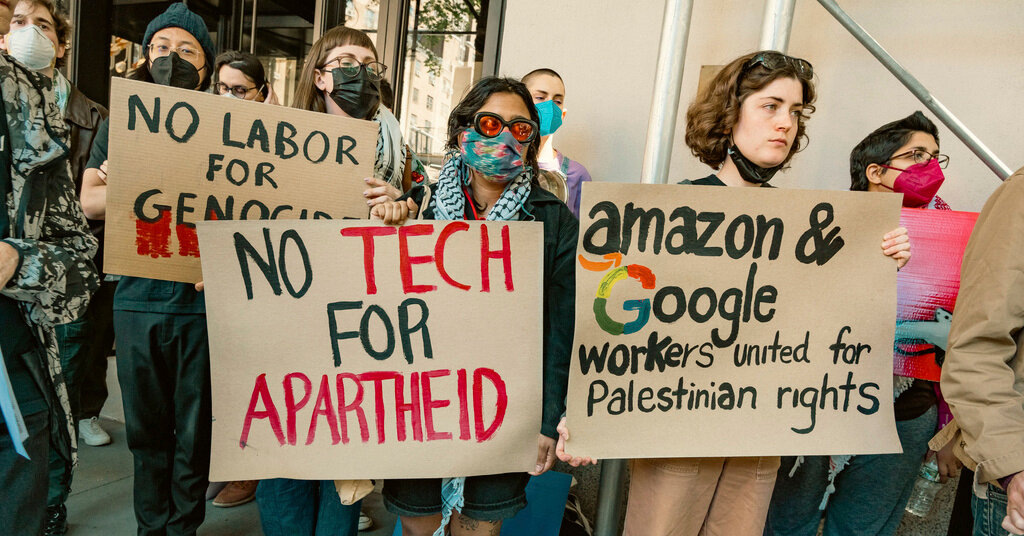Eight years ago, workers loudly protested White House policies. This time around, the companies are trying to keep a lid on activism.
If any industry could have said its workplaces were politicized, it was tech.
Early in Donald J. Trump’s first term in the White House, America’s tech giants loudly protested his temporary ban on travel from seven predominantly Muslim countries.
Mark Zuckerberg, Facebook’s chief executive, posted that his great-grandparents were immigrants and that his in-laws were refugees. Sergey Brin, a co-founder of Google who immigrated from the Soviet Union as a child, rushed to San Francisco International Airport to protest.
Sundar Pichai, Google’s chief executive, joined a crowd of employees rallying at the company’s corporate headquarters.
“Wow, thank you everyone for showing up today,” he said to cheers. “It’s remarkable.”
But after this week’s presidential election, the largely liberal work forces of tech’s biggest companies were quiet. While the definitive nature of the election most likely played a role, the change also represented an effort by executives to dampen employee activism in recent years. They put in place policies restricting dialogue, monitored internal chat channels and vowed not to weigh in on the issues that fired up activist employees.
If the presidential election was going to be the biggest test of these new rules, the vigilance wasn’t necessary. Reactions to the election on company message boards and forums was muted.
On a companywide Google forum, someone posted an American flag with the note “Sending support to American colleagues,” which was liked by more than 1,000 employees.
